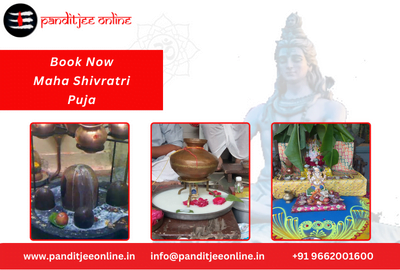Diwali, also known as the Festival of Lights, is one of the most significant and celebrated festivals in India and across the world. This festival, symbolizing the victory of light over darkness and good over evil, brings families and communities together in a joyous celebration of lights, sweets, and prayers. However, Diwali is not just about lighting lamps and exchanging gifts; it is deeply rooted in spiritual and religious significance, with various pujas and rituals performed to seek blessings, prosperity, and protection from divine entities.
In 2024, Diwali will be celebrated with the same fervor and enthusiasm. To make this festival truly special, it is important to understand the various pujas that are performed during Diwali. Each puja holds unique significance and helps devotees connect with divine powers to bless their homes and families. In this blog, we will explore the key pujas performed during Diwali, including Lakshmi Puja, Kuber Puja, Hanuman Puja (Kali Chaudas), and Govardhan Puja.
If you are looking to perform these sacred rituals with the guidance of a knowledgeable and experienced Pandit, visit Panditjeeonline, the trusted platform for booking Panditji for all Vedic rituals and ceremonies.
Lakshmi Puja: Welcoming the Goddess of Wealth and Prosperity
Lakshmi Puja is one of the most important rituals performed during Diwali. Dedicated to Goddess Lakshmi, the Hindu goddess of wealth, prosperity, and fortune, this puja is observed on the third day of Diwali, which is also the main day of the festival. The belief is that Goddess Lakshmi visits the homes of her devotees on this day and blesses them with abundance and happiness.
Significance of Lakshmi Puja
Lakshmi Puja is performed to invite prosperity and financial growth into one’s life. It is believed that performing this puja with devotion will lead to a prosperous year ahead, free from financial difficulties. The puja also symbolizes the removal of obstacles and negativity, making way for success, peace, and abundance.
Traditionally, Lakshmi Puja is conducted in the evening, after sunset. People clean their homes thoroughly, as it is believed that Goddess Lakshmi only visits homes that are clean and welcoming. Beautiful rangolis are drawn at the entrance, and lamps (diyas) are lit to guide the goddess into the household.
Steps of Lakshmi Puja
1.Cleaning and Decoration: Begin by cleaning the house to remove any clutter and negativity. Decorate the entrance with colorful rangoli designs and light earthen lamps to symbolize the presence of divine light.
2.Placement of Idols: Place the idols of Goddess Lakshmi and Lord Ganesha on a clean cloth or altar. Ganesha is worshipped alongside Lakshmi as the remover of obstacles and the god of wisdom and success.
3.Offering of Prasad: Offer flowers, sweets, fruits, and grains to the deities. Light incense sticks and diyas around the altar.
4.Chanting of Mantras: Chant Lakshmi mantras and offer prayers with a sincere heart. Recite the Lakshmi Aarti to conclude the puja.
5.Distribution of Prasad: Once the puja is complete, distribute the prasad among family members and neighbors.
By performing Lakshmi Puja, devotees express their gratitude and seek blessings for a prosperous and abundant future.
Kuber Puja: Worshiping the Guardian of Wealth
Kuber Puja, also known as Dhanteras Puja, is performed on the first day of the five-day Diwali festival. Lord Kuber is the Hindu god of wealth and the guardian of the treasures of the gods. He is also known as the king of Yakshas, celestial beings associated with wealth. Worshiping Lord Kuber during Diwali is believed to bring financial stability and wealth.
Significance of Kuber Puja
The significance of Kuber Puja lies in its association with material wealth and financial success. By worshiping Lord Kuber, devotees seek his blessings to safeguard their wealth and attract more prosperity. This puja is especially important for business owners, traders, and those seeking to grow their financial assets.
Kuber Puja is typically performed along with Lakshmi Puja, as both deities represent wealth and prosperity. The combination of Lakshmi’s grace and Kuber’s protection ensures that wealth flows into the home and remains secure.
Steps of Kuber Puja
1. Preparation: Begin by cleaning the house and decorating it with flowers and lamps. Set up an altar with the idols of Lord Kuber and Goddess Lakshmi.
2. Offerings: Offer flowers, fruits, sweets, and silver or gold coins to Lord Kuber. Light diyas and incense sticks.
3.Chanting of Mantras: Recite Kuber mantras and offer prayers with dedication. Mantras such as “Om Yaksha Rajaya Vidmahe, Vaishravanaya Dheemahi, Tanno Kubera Prachodayat” are commonly chanted during the puja.
4.Financial Planning: Many devotees also use this day to review their finances and make investments, as it is considered an auspicious time for wealth-related decisions.
Performing Kuber Puja with devotion ensures that wealth remains in the household and financial growth is sustained throughout the year.
Hanuman Puja (Kali Chaudas): Protection from Negativity
Hanuman Puja, also known as Kali Chaudas, is observed on the second day of Diwali, a day before Lakshmi Puja. This day is dedicated to Lord Hanuman, the divine protector and symbol of strength and courage. Kali Chaudas is also associated with the goddess Kali, who symbolizes the destruction of evil forces.
Significance of Hanuman Puja
The main objective of performing Hanuman Puja during Diwali is to seek protection from evil spirits, negative energies, and all forms of harm. Lord Hanuman, known for his unwavering devotion to Lord Rama and his immense strength, is worshiped for courage, protection, and success in all endeavors.
On this day, devotees pray to Hanuman to ward off any negative influences that may hinder their progress or happiness. This puja is especially important for those seeking to overcome fear, challenges, or obstacles in their lives.
Steps of Hanuman Puja
1. Altar Setup: Set up a clean altar with an idol or picture of Lord Hanuman. Place flowers, vermilion, and mustard oil on the altar.
2.Offering Prasad: Offer sweets, fruits, and coconut to Lord Hanuman. Light diyas and incense sticks.
3.Chanting of Hanuman Chalisa: Recite the Hanuman Chalisa or other Hanuman mantras to invoke the blessings of the deity. The Hanuman Chalisa is a powerful hymn that glorifies the strength and devotion of Lord Hanuman.
4.Aarti and Prasad Distribution: Conclude the puja with an aarti and distribute the prasad to family members.
Performing Hanuman Puja on Kali Chaudas helps devotees overcome fear, gain confidence, and protect themselves and their families from negative influences.
Govardhan Puja: Honoring Lord Krishna and Nature
Govardhan Puja, also known as Annakut, is performed on the fourth day of Diwali. This puja celebrates the divine act of Lord Krishna, who lifted the Govardhan Hill to protect the people of Vrindavan from torrential rains sent by Lord Indra. Govardhan Puja is an expression of gratitude to nature and Lord Krishna for protecting and nurturing humanity.
Significance of Govardhan Puja
The significance of Govardhan Puja lies in its connection with Lord Krishna’s love for nature and his role as the protector of all beings. By performing this puja, devotees express their gratitude for nature’s bounty and seek protection from natural calamities. It also reminds people of the importance of living in harmony with nature and showing respect for the environment.
On this day, devotees prepare a large offering of food, known as Annakut, which consists of various vegetarian dishes. These offerings are placed before Lord Krishna as a symbol of gratitude and devotion.
Steps of Govardhan Puja
1. Setting Up the Altar: Set up an altar with an idol or image of Lord Krishna. Place fresh flowers and grains on the altar.
2. Offering of Annakut: Prepare a variety of vegetarian dishes, including sweets, grains, and dairy products. Offer these dishes to Lord Krishna as a token of gratitude for his blessings.
3. Chanting of Krishna Mantras: Recite mantras dedicated to Lord Krishna, such as “Om Namo Bhagavate Vasudevaya,” and offer prayers with devotion.
4. Performing Govardhan Aarti: Conclude the puja with the Govardhan Aarti and distribute the prasad to all family members and neighbors.
Govardhan Puja is a reminder of our connection to nature and the importance of living in harmony with the environment.
Book a Pandit for Diwali Puja
Performing these sacred rituals during Diwali can bring immense blessings and prosperity to your home. However, to perform these pujas with the proper Vedic rituals and mantras, it is essential to have an experienced and knowledgeable Panditji guide you through the process.
At Panditjeeonline, we provide highly qualified and experienced Pandit ji for all types of Diwali pujas, including Lakshmi Puja, Kuber Puja, Hanuman Puja, and Govardhan Puja. Our Pandits are well-versed in the Vedic traditions and will ensure that the pujas are performed with utmost devotion and accuracy.
Whether you are looking for a Pandit for a specific community or a particular type of puja, Panditjeeonline has the right Pandit for you. Book your Pandit today for Diwali 2024 and celebrate this festival of lights with divine blessings and prosperity.



